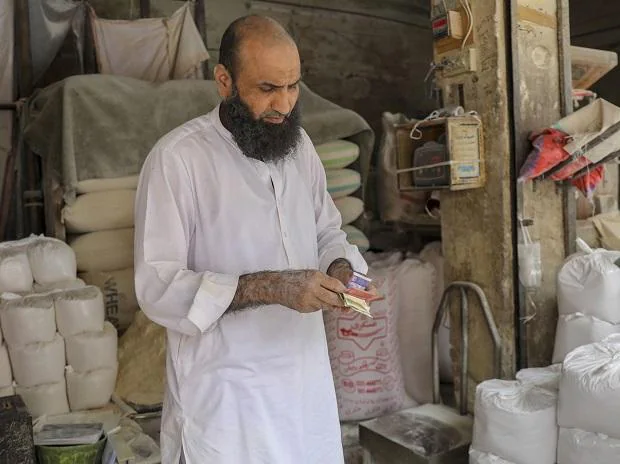Pakistan’s foreign exchange reserves fell below $10 billion, threatening to spill over into a fullblown economic crisis unless policy makers secure a loan from the International Monetary Fund.
The stockpile decreased by $366 million in the week ended May 27 to stand at $9.72 billion, the central bank said in a statement on its website. That’s roughly a 50 per cent drop from August and enough to pay for less than two months of imports.
The shortage of dollars could worsen as the nation forecasts its trade deficit will widen to a record $45 billion in the year ending June.
Authorities have raised fuel and electricity prices, a key condition to unlock the remaining $3 billion of an existing loan by the multilateral lender.
In addition to raising fuel prices, Pakistan will need to make further fiscal adjustments to narrow the budget deficit for FY23 to secure the IMF loan, said Raphael Mok, head of Asia country risk at Fitch Solutions in Singapore.
This will likely entail measures to boost tax collection and to reduce subsidies and capital expenditure, he said.“The widening current-account deficit is also a source of concern for policy makers and IMF officials, for which the government has announced a ban on over 30 luxury goods including cars,” Mok said.
 Dear Reader,
Dear Reader,
Business Standard has always strived hard to provide up-to-date information and commentary on developments that are of interest to you and have wider political and economic implications for the country and the world. Your encouragement and constant feedback on how to improve our offering have only made our resolve and commitment to these ideals stronger. Even during these difficult times arising out of Covid-19, we continue to remain committed to keeping you informed and updated with credible news, authoritative views and incisive commentary on topical issues of relevance.
We, however, have a request.
As we battle the economic impact of the pandemic, we need your support even more, so that we can continue to offer you more quality content. Our subscription model has seen an encouraging response from many of you, who have subscribed to our online content. More subscription to our online content can only help us achieve the goals of offering you even better and more relevant content. We believe in free, fair and credible journalism. Your support through more subscriptions can help us practise the journalism to which we are committed.
Support quality journalism and subscribe to Business Standard.
Digital Editor
www.business-standard.com
